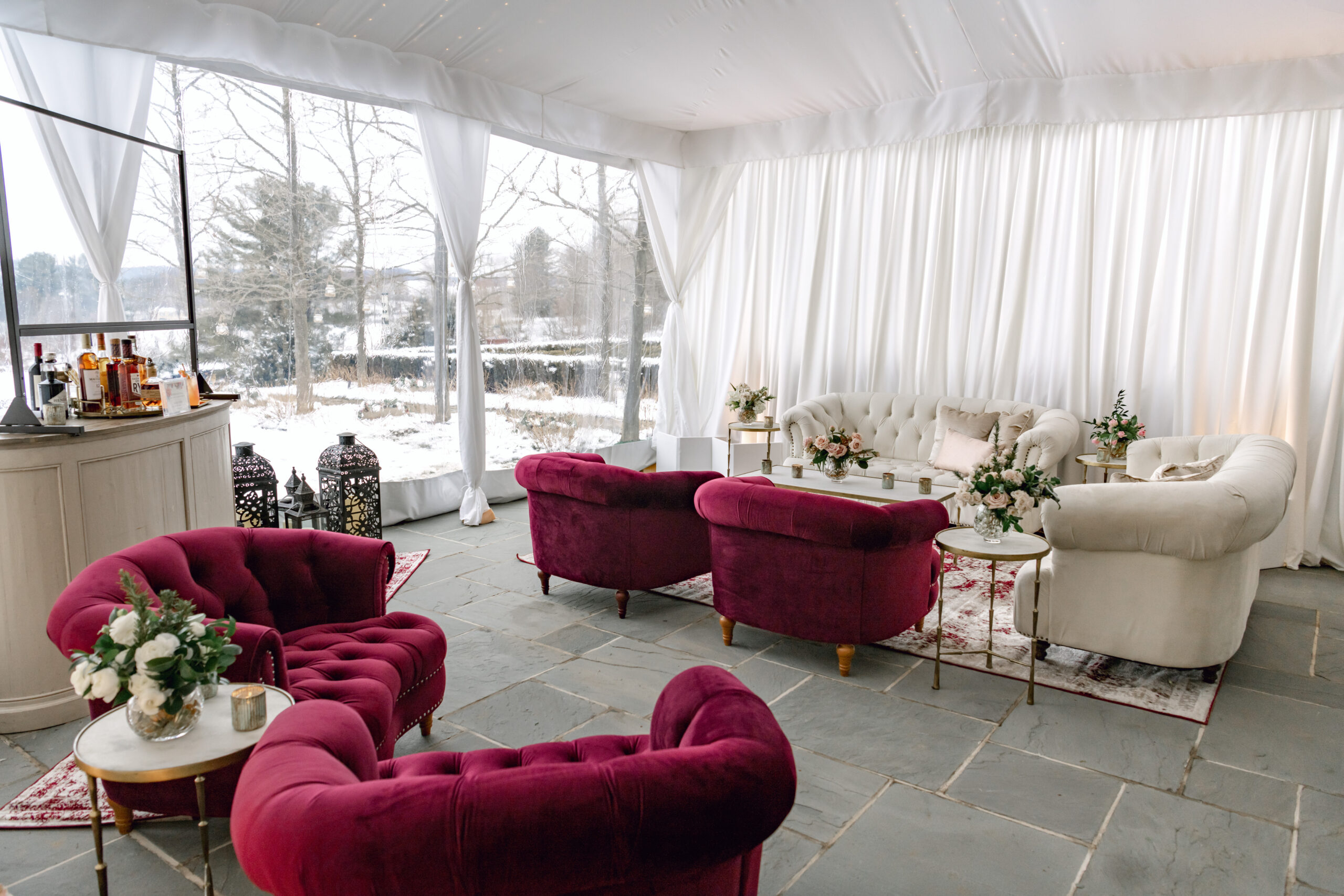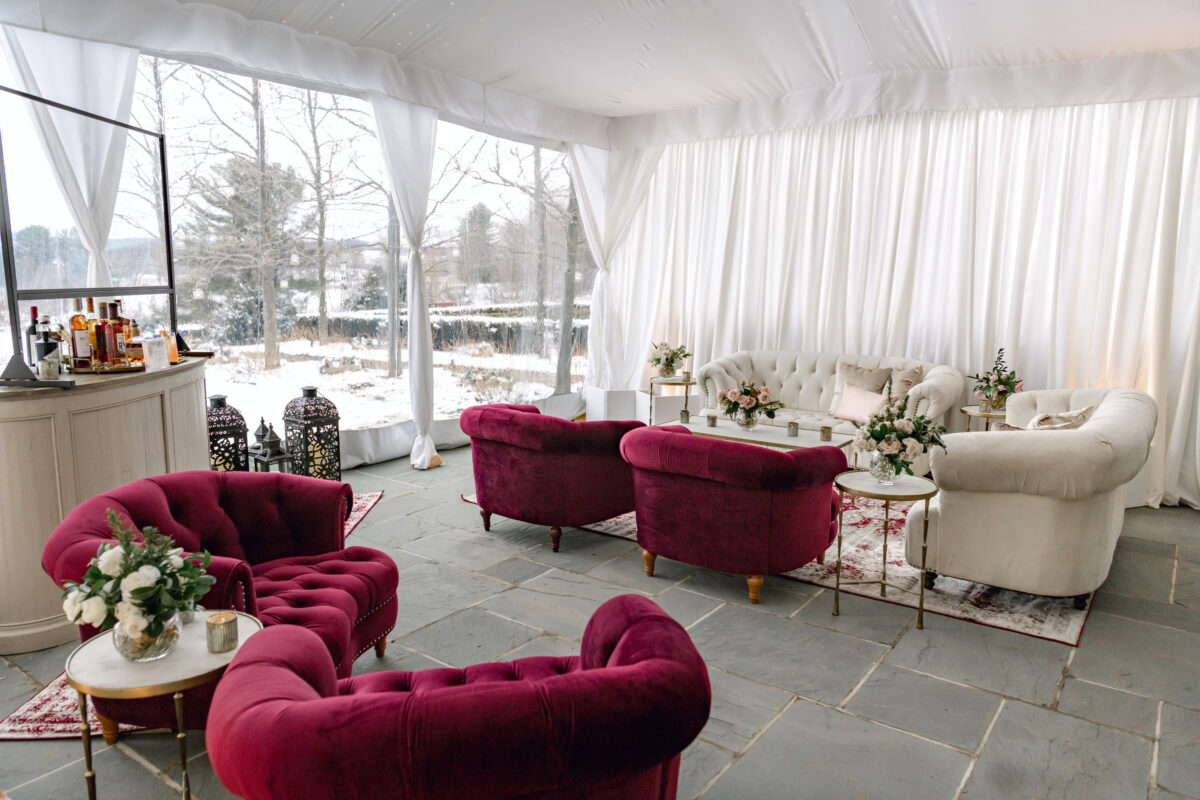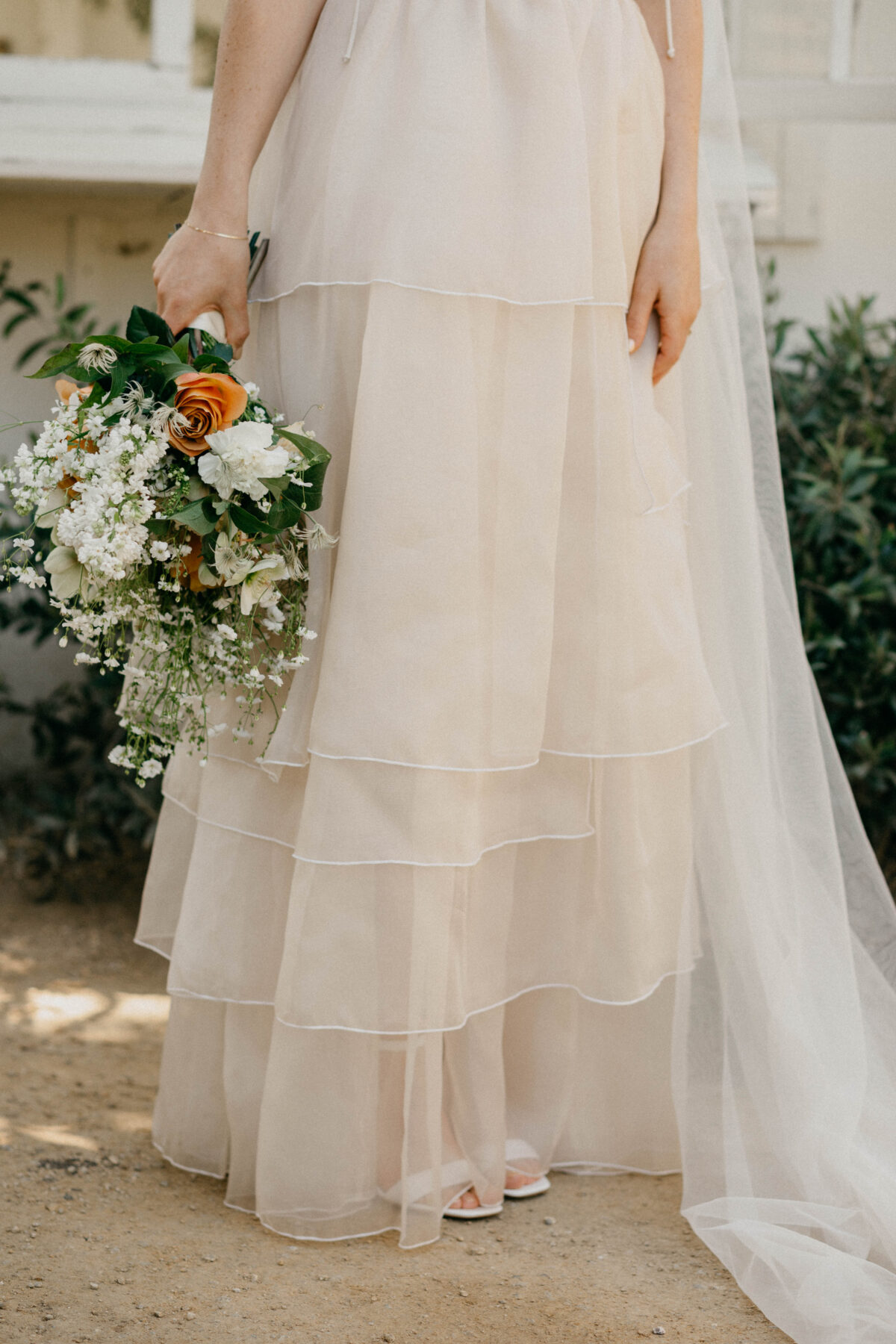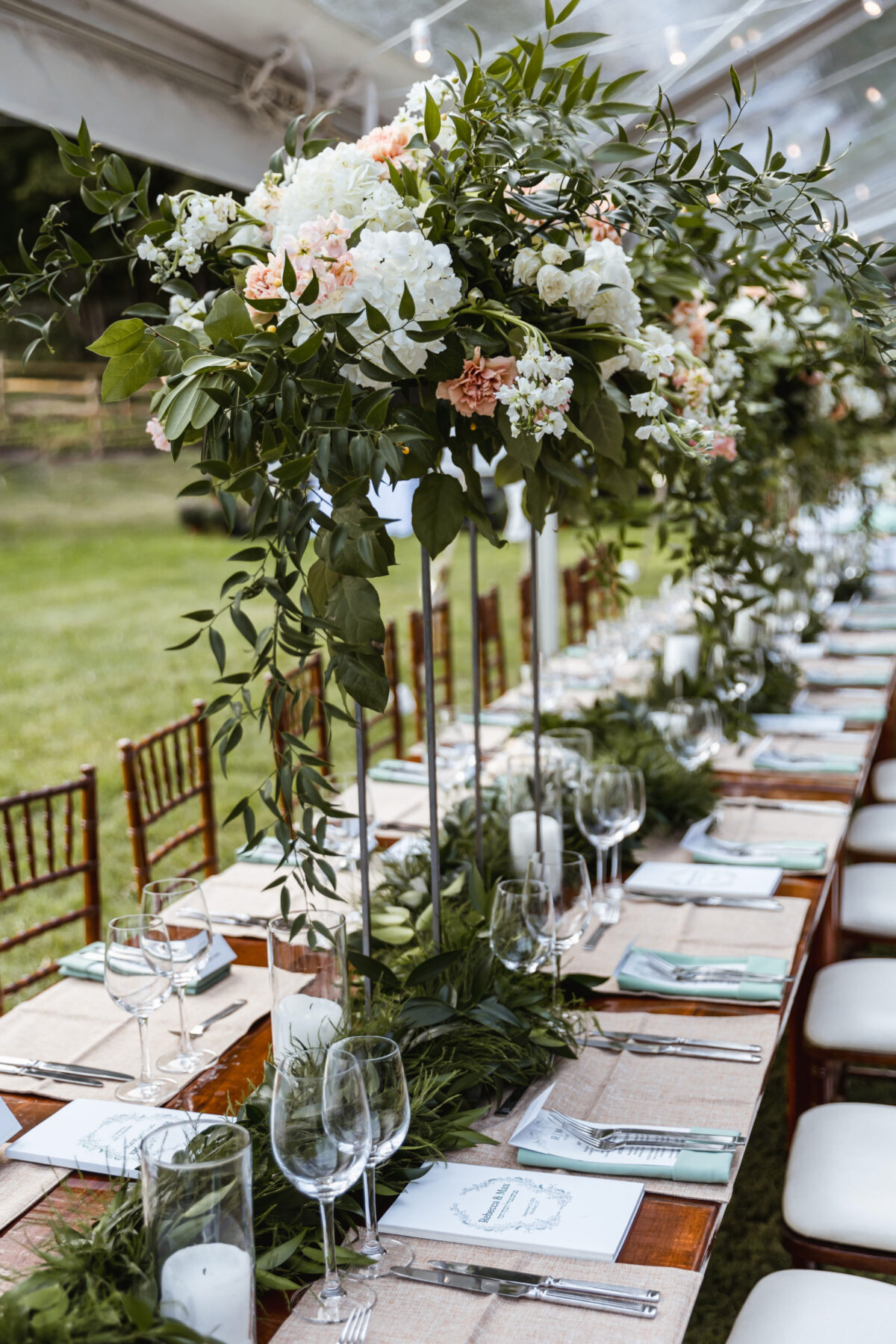When planning a wedding, you quickly learn that some seasons are busier than others. During popular months, you can expect to deal with limited vendor availability, higher costs, and fewer dates. Of course, the “peak season” is peak for a reason: it’s when the weather is nicest, allowing for flexibility in venue choices.
Yet while “off-season” often refers to cold-weather months, like January to March, slow periods ultimately vary by a region’s climate. For instance, warmer destinations like Southern California or Florida often quiet down during the thick of summer since the high temperatures can be unpleasant for outdoor celebrations.
So whether you’re planning a wedding close to home or at a faraway destination, it’s important to know when the wedding industry is busiest — especially if you’re considering an off-season celebration. Keep reading for the pros and cons of off-season weddings, so you can make the best decision for your big day!
Pro: It’s easier to secure top-choice wedding vendors.
Fighting over your dream photographer is not the best way to start your engagement. Worse yet, you may have to settle for second (or third!) best. With so many weddings during peak season, industry pros often get booked up months in advance, making it difficult to secure your ideal lineup of vendors.
But you’ll have much better luck during quieter months, as Nora Sheils of Rock Paper Coin and Bridal Bliss assures. “A pro of having an off-season wedding is much more availability in your search when filling your vendor team. So you could essentially plan in less time and still get your first choice to fill every vendor category.”
So if there are must-have vendors on your list or you want to tie the knot ASAP, an off-season wedding may be just the answer!
Con: You might have to deal with off-season closures.
While you may experience more vendor availability, it’s important to recognize that the off-season is also when wedding professionals book vacations and other obligations.
“Planning a wedding in the off-season could mean that some specialty vendors won’t be available, and some may charge more,” confirms Alicia Igess Jones.
Kelley Nudo of Momental Designs agrees, adding that “some vendors might specifically take that time off, knowing their calendar is jam-packed for the rest of the year.”
Furthermore, holidays can get in the way of an otherwise-slow period for event pros.
For instance, “even though February is not typically a popular month for weddings, some florists might be less inclined to take on a wedding, with Valentine’s Day being an infamously busy time in their industry,” Nudo explains.
Vendors aside, you may also run into challenges if you intend to capitalize on local activities during your wedding weekend.
“Some cities may shut down certain businesses or areas in the off-season,” reminds Jen Sulak of Weirdo Weddings. “You will want to consider this when you have people traveling in (or local) to have any activities that could be affected before, during, or after.”
Off-season might not look like the rest of the year—both for your vendors and your city—so be proactive and plan ahead if you’re relying on a certain company or experience to enhance your guest experience.
Pro: You’ll likely save a lot of money.
Wedding pros often charge a premium for highly-coveted dates during peak season. But when their calendars aren’t as full, you’ll likely find discounted rates to pad your budget.
“Hosting a wedding in the off-season can lead to significant savings,” affirms George Wainwright of Coastal DJ & Video. “The off-season means fewer weddings, so many venues and vendors offer discounted rates during this time.”
Think about what you could do with some extra room in your budget! You could invest in wedding day upgrades (get that lounge area!), add a few honeymoon perks (did someone say couple’s massage?), or stash away your savings for future use (hello, house fund!). The choice is yours!
Con: You can’t escape inclement weather concerns.
While those who prefer indoor weddings may have no issues celebrating in the off-season, you’ll have a harder time if you want to host an outdoor wedding.
“Typically, off-season is off-season for a reason,” states Nikki Golden of Nikki Golden Photography, LLC. “For instance, a hot location like Florida may experience a lot of tourism during the summer, but it is off-season for weddings because it is extremely hot and rains more often in the summer. Due to this, some venues may give a discount for weddings during this time, but it won’t be as pleasant of an experience for yourself or your guests because of the heat and humidity.”
In other locales, off-season weddings might be subjected to freezing temperatures, heavy rain, and even natural disasters like hurricanes and tornadoes. Since you can’t predict the forecast months in advance, it’s vital to have a contingency plan ready in case Mother Nature doesn’t turn out in your favor!
Pro: You won’t have to compete with other events.
Planning a wedding alongside fellow engaged friends can be a blast, but when it comes time to celebrate, it can breed competition and discomfort between loved ones.
“At this stage in your life, chances are you aren’t the only one in your friend group getting married,” states Ian Ramirez of Madera Estates. “And who wants to worry about conflicting weddings, getting stuck with leftover dates, or worse, getting married one month after your sister even though you chose your date first? Plus, you won’t have to compete for guests’ attention or worry about comparing “who did it better?” when selecting a date in the off-season.”
If you want your wedding to stand out, opt for a quieter time of year when you won’t have to worry about juggling holidays, showers, bachelor(ette) parties, and other occasions.
Con: Shorter days mean less sunlight.
Sunlight probably doesn’t make it onto your list of wedding day considerations, but it’s something to keep in mind as you book a photographer and create your day-of timeline.
“Because daylight is shorter in winter, couples may hire their photographer for longer hours to maximize the natural light photos,” explains Sarah Jobe of Twickenham House and Hall. “However, this requires the couple to move up their wedding timeline and consider nontraditional elements like a first look for efficient photography.”
While many couples don’t mind shifting their timeline or having a first look, others may not want to break tradition. Check your wedding locale’s average sunrise and sunset times for off-season to determine the golden hour, and confirm whether you’re open to adjusting your wedding day timeline to fit in with the sun.
Pro: More of your guests will be able to come.
Spring break, summer vacation, back to school — peak wedding season tends to be busier for everyone, including your friends and family.
Fortunately, “hosting a wedding in a non-traditional month for weddings can lead to having more guests RSVP yes,” shares Kimberly Sisti of SISTI & CO. “Frequently, guests decline if it’s the summer and they cannot locate childcare or if they already have a vacation planned. Travel costs, too, might be lower if guests travel at less popular times.”
And, as mentioned before, you won’t have to compete with other weddings during the off-season. “As many couples have friends that might also be getting married, you have to worry less about other weddings that overlap with yours,” shares Monika Kreinberg of Furever Us. “As a result, the chances that people can attend your big event are slightly higher.”
So if your goal is to gather as many loved ones as possible, you’ll likely have an easier time doing so when people’s schedules are more open.
Con: You may have limited access to certain items.
You’ll have to accept some hard truths when planning an off-season wedding. In particular, sourcing seasonal items—like flowers and food—can present challenges.
“Some flowers may not be in season, resulting in a limited selection of floral options and potentially higher costs for specific arrangements,” notes Mary Angelini of Key Moment Films. “Couples need to be aware of the flower availability during their chosen season and discuss their preferences with their florist. If there’s a specific flower that the couple has their heart set on, they should consider the seasonality of that flower to ensure it’s available and avoid disappointment.”
As for fresh ingredients, Christina Lovelace of Lovelace Design says that foodies may struggle with menu planning. “If you are a foodie and want to have certain foods at your wedding, then choosing an off-season wedding may be an issue,” she confirms. “Caterers offer certain foods during certain seasons for reasons of taste and cost alike. However, you could be disappointed if you long to have that one favorite dish served at your wedding.”
Experienced wedding professionals can help you explore alternative options for floral design and menu planning. However, if there are flower types or dishes that you can’t live without, an off-season wedding might not be the right choice for you.
Off-season weddings come with many benefits, but they aren’t for everyone. Consider whether the benefits—like cost savings and vendor availability—outweigh the challenges—like inclement weather and local closures—before securing your wedding date. No matter your choice, your wedding will shine any time of year!
Meghan Ely is the owner of wedding PR and wedding marketing firm OFD Consulting. Ely is a sought-after speaker, adjunct professor in the field of public relations, and a self-professed royal wedding enthusiast.






